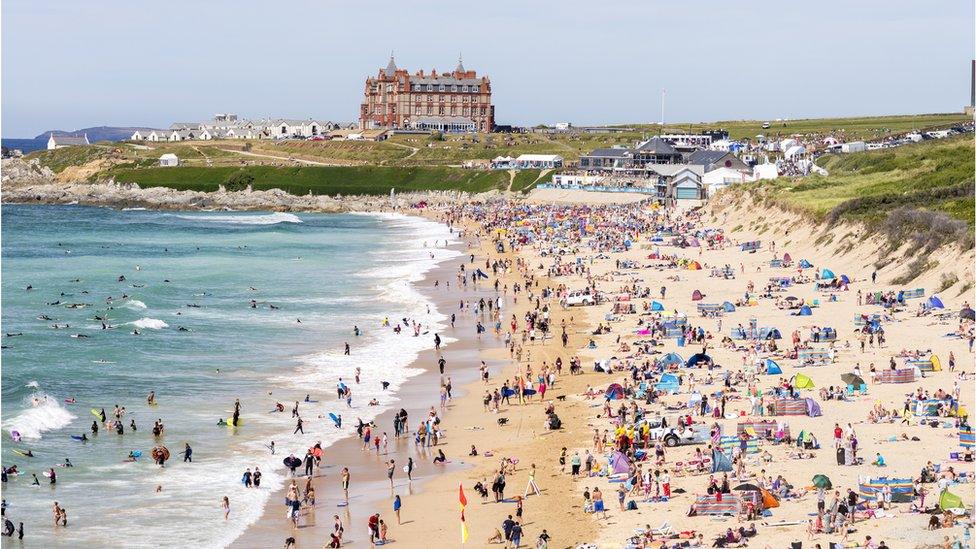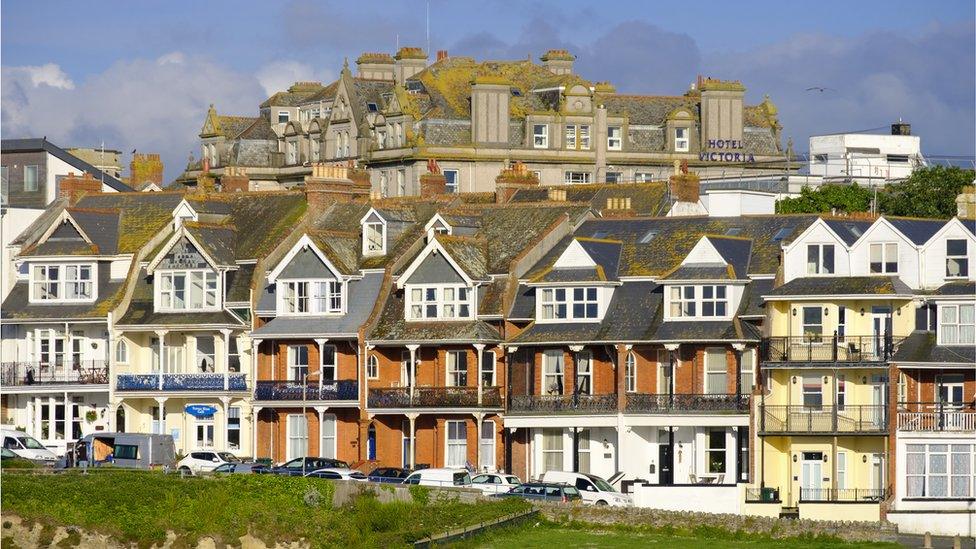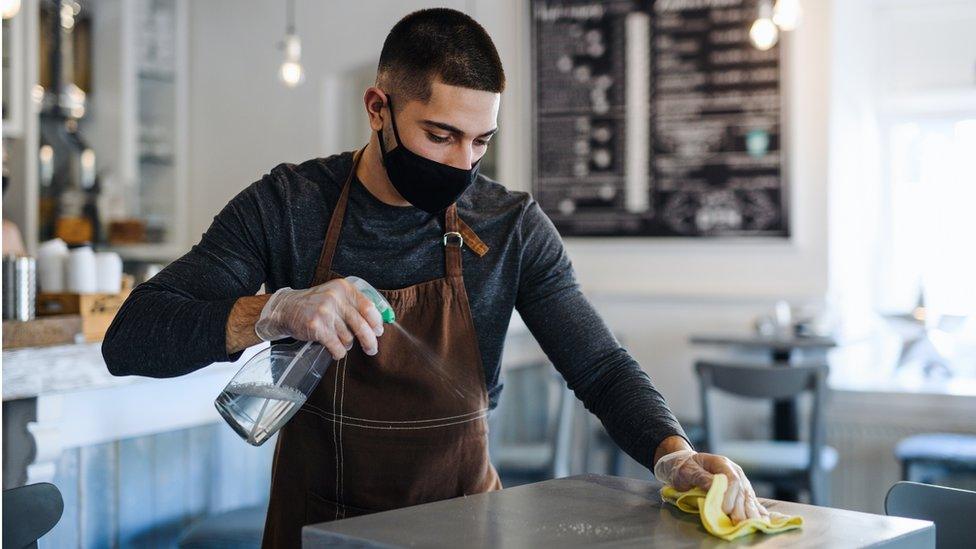Hospitality workers priced out of UK tourism hotspots
- Published

Jon Phillips is just one of the hospitality workers who are finding accommodation is scarce
Hotel worker Jon Phillips has given up trying to rent a home near his job in Cornwall and is now living on his boat.
"My landlord said: 'Look Jon, you're paying me £800 a month for this one bedroom apartment, and I've just found out that I can be charging people on holiday £1,200 a week.'"
He is one of many hospitality workers in British tourist hotspots who are finding accommodation scarce.
This is as landlords want to cash in on the UK holiday boom.
Jon is the front of house manager for Red Hotels, which includes the Scarlet Hotel and the Bedruthan Hotel in Mawgan Porth, along the coast from Newquay.
He moved to Cornwall to take up his job in October 2020, and, after staying in staff accommodation, in January began renting a one-bedroom flat in Newquay for £800 a month.
But at the start of April he had a letter from the agents to tell him his landlord had decided to end the tenancy.
Jon started looking for alternative places to live but says there was nowhere to rent in the Newquay area.
"If you do go for a property there are more than 30 people going for it.
"When you get to the point of being accepted they then turn round to you and say 'Well actually we've added another couple of hundred pounds to the monthly rent'.
"Or they may even ask you to pay six months rent in advance, otherwise they'll go to the next person," he said.

The UK holiday boom is helping to force up rents in places like Newquay
Jon told Radio 4's You and Yours: "The day that Boris Johnson announced that people could start going into self-catered accommodation, that's when everything changed.
"Because every owner of a property in Cornwall knew that the British public would be baying for self-catered accommodation and willing to pay ridiculous amounts of money to secure their holiday in the UK.
"I'm rather lucky because I do own a boat, and I'm now living on my boat, so I can at least carry on working in Cornwall. But what does anyone else do?
"In the autumn things will calm down again and these landlords will be going cap-in-hand to people who live in the area, wanting them to rent their places over the winter again, and the test will be, how many people will turn around and say 'No'?"
With lockdown easing the hospitality sector is opening up, but there is a huge shortage of staff.
UK Hospitality, the trade body that represents the industry, has estimated that there is a shortage of about 188,000 workers.
Hospitality jobs are traditionally some of the lowest paid roles, and the increasing cost of finding a place to live in areas like Cornwall and the Lake District is making it harder for hotels, restaurants and bars to recruit staff.

Emma Stratton says pressure on accommodation seems to be causing resentment among locals
Emma Stratton owns Red Hotels. She currently has at least 20 vacancies being advertised, and she says she's struggling to find workers.
"We've had people who've accepted employment offers with us and then haven't been able to find accommodation and have had to turn the job down," she said.
"We're lucky in that we have quite a lot of team accommodation so we're able to offer rooms to key people, but many businesses just don't have that.
"The wider problem is, it's not making living in places like Cornwall very easy for local people, and that seems to be causing growing resentment in communities."
Her business pays staff the real living wage of £9.50 an hour and says she believes the industry needs to commit to the long term affordability of roles.
Nikola Kubeckova is a payroll administrator at the Red Hotel group. She and her partner rented a cottage in the Newquay area in 2014 when she moved from the Czech Republic, but in April her landlord asked for the property back.

High rents are pushing up wages in hospitality and that will mean customers paying more, the industry says
"It was very difficult to find somewhere to rent. We didn't really get a chance to see many properties, because there were just way too many applicants. Every time something new came up we tried to see it but it was pretty much impossible," she says.
Kate Nicholls, the Chief Executive of UK Hospitality, says the shortage of affordable accommodation is affecting staff in tourism hotspots across the UK.
She says businesses are having to pay more to attract staff and that will have an impact in the price consumers pay.
She says: "We are starting to see wage rate inflation coming through in certain parts of the country and in certain roles, where the local labour market does need to have high wages to attract the staff to those roles, and that's feeding through into customer prices."
Related topics
- Published30 May 2021

- Published26 May 2021

- Published28 May 2021
